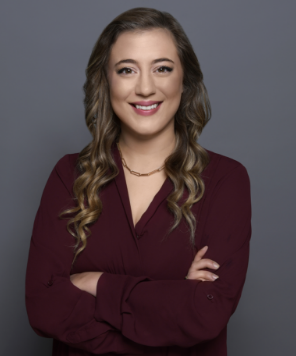Founders Turned Venture Capitalists
Posted by: Leila Chreiteh
Posted on 02/10/2021

Posted by: Leila Chreiteh
Posted on 02/10/2021

The Partners at Outlander VC share one very important commonality: experience as founders. Each of us turned to venture capital to solve a problem we faced while sitting on the other side of the pitch deck, and we are now uniquely positioned to mentor founders based on this shared understanding. From the barriers facing minority entrepreneurs to the pitfalls of trial and error, here’s how our team of founders-turned-venture-capitalists is using their founder experience to guide their investing, plus their advice for founders just starting out.

As a female founder raising venture capital, I was pitching to a fairly homogenous subset of men to which I was a stark minority. At networking events, I was disheartened by the lack of gender or racial diversity (especially where those identities intersect) among my fellow founders. In recent years, it’s become more widely-acknowledged that the tech startup ecosystem is not diverse enough. However, just talking about this lack of diversity is also not enough.
We know that 65% of venture capital firms have no female partners and 81% have no Black investors, which directly impacts how they source potential investments, evaluate founders, and fund ventures. At Outlander, we believe that who sits at the decision-making table matters. We believe that one of the best ways to diversify the tech ecosystem is to diversify who is writing the checks, so that is exactly what we did.
On a more day-to-day level, one of the things I work on with Outlander’s portfolio companies that I learned as a founder is ruthlessly prioritizing where you invest your energy. There will always be too much to do and never enough time, so it’s crucial that founders intentionally prioritize progress in areas that will get their venture to its next important milestone.
“At Outlander, we believe that who sits at the decision-making table matters. We believe that one of the best ways to diversify the tech ecosystem is to diversify who is writing the checks, so that is exactly what we did.”

I didn’t start my military business to make money; I started it to solve big problems with a crazy idea that I knew would make a massive impact. And when I transitioned to tech investing, I realized that every founder I met was just like me just years earlier: motivated despite a world of naysayers that can’t wrap their heads around such an ambitious vision for the future and also very much in need of support beyond just capital.
As we point out in Outlander’s Founder Framework, founders are psychologically unique in their bigger-than-life visions and the need for emotional resilience, which is why former operators often make the best mentors and investors: we get what it’s like to willingly embark into uncharted waters when everyone ashore thinks you’ve lost your damn mind.
As a founder turned investor, my advice for any founder is to experiment at the intersection of their passions and capabilities—this will ensure your venture offers a truly innovative and unique insight into the problem you’re trying to solve. It’s not enough to just find a problem and set out to solve it; without an underlying motivation, there is less reason to push through when things inevitably get tough.
“It’s not enough to just find a problem and set out to solve it; without an underlying motivation, there is less reason to push through when things inevitably get tough.”

Though not a tech startup founder, I’ve been fortunate to walk the founder path in other industries. Throughout these experiences, I kept arriving at this conclusion: the companies I wanted to build were ones that 1) I truly believe will make a significant, positive impact in the world, and 2) the founders are uniquely positioned to build their vision of the future.
When I quickly learned that becoming an expert in all my areas of interest was unrealistic, I realized that venture capital offered the perfect modality to scale this desire. As an investor, I am in my happy place: working with brilliant minds who are passionate about solving big-impact problems across a myriad of industries. Investment fit or not, my mission is to help founders succeed, and I revel in acting as both a sounding board for their business challenges, as well as making introductions to potential resources, talking through life, and much more.
Reflecting on my time as a founder, I definitely could have been more honest with myself about my strengths and weaknesses and worked to build a more robust support network. I often encourage our founders to lead with their vision of the future and the unwavering belief that they are uniquely positioned to build that vision. However, this unwavering belief is not to be confused with the unrealistic expectation that founders be experts in every aspect of their startup and execute every operation perfectly (far from it!), but knowing when to assess their gaps and rely on the support system they’ve built is crucial to their success.
“As an investor, I am in my happy place: working with brilliant minds who are passionate about solving big-impact problems across a myriad of industries. Investment fit for not, my mission is to help founders succeed.”

My founder experience is one I hear often as an investor: I didn’t know what I didn’t know until it was too late. As a non-technical founder, I did know I had certain knowledge gaps related to technology. I didn’t realize I also had other big gaps in relationships, capital, and start-up expertise that I’d have to fill to scale my company to over $10M in annual revenue.
I like to joke that during those years of trial and error I personally stepped on most of the hidden landmines that lie in wait for new founders. Now, as an investor, I’m eager to share my experiences with founders to help them stay on safe ground and scale their ventures bigger and faster—and with less angst—than I did mine.
I learned a lot of timeless lessons during my entrepreneurial journey, many of which apply to all leadership roles, not just founding a tech company. An important overarching one is that you must be self-aware and brutally honest with yourself. You won’t be great at everything. That’s okay! Accept it, and don’t try to do it all yourself. Purposefully surround yourself with advisors, cofounders, and peers who complement your weaknesses and your skillset. No one will expect you, the founder, to be an expert in every aspect of your company. You’re expected to lead, a big part of which is equipping your company with the experts it needs to thrive.
“No one will expect you, the founder, to be an expert in every aspect of your company. You’re expected to lead, a big part of which is equipping your company with the experts it needs to thrive.”

With 20+ years in tech as an operator, serial founder, and startup advisor, I’ve observed the process of raising startup capital from countless case-studies, and what I keep running into is a dissonance between the exceptional women of color founders I meet and the inaction of investors.
Note that I am not citing a lack of opportunities, but that fewer investors have been willing to take a chance on a marginalized founder’s vision: it runs the gamut from microaggressions in interviews to dismissing ventures aiming to revolutionize multi-billion dollar industries that simply do not apply to the majority of (white, male) investors. I’ve seen and experienced first-hand the gap between marginalized founders and the support they need to grow their ventures, and I wanted to be a part of the solution.
To bridge this gap, I work to educate the tech community about the untapped potential of not only these underrepresented founders but also the untapped potential of the Southeast. In that same vein, my biggest piece of advice is really for investors, and it’s simple: don’t count us out. If you want to invest in truly exceptional founders, start making a conscious effort to cultivate relationships with investors and founders who don’t look or talk like you. If you want to invest in startups already changing the world with their vision, forget what you thought you knew about the South. We’re here, and we can’t wait to show you what we’ve been working on.
“If you want to invest in startups already changing the world with their vision, forget what you thought you knew about the South. We’re here, and we can’t wait to show you what we’ve been working on. ”
These founder-turned-venture-capitalists are not only uniquely positioned to mentor Outlander VC’s portfolio companies from a place of experience and innate understanding, but we also bring a founder’s mentality (vision, intelligence, character, and execution) to how and why we invest. At Outlander, we invest in the brightest founders with game-changing visions for the future because we know what it’s like to be on the edge of something big.

Leila is a communications strategist and tech enthusiast who believes in investing in a better, more progressive future.
As we explore the unknown of each new investment, our Field Guides are where we document all that we learn along the way.
So, whether you’re actively raising, trying to break into VC, or interested in our game-changing portfolio, our Field Guide's got you covered.
Sign up now for exclusive access to funding opportunities, events/resources from our network of experts, updates from our portfolio, and more!